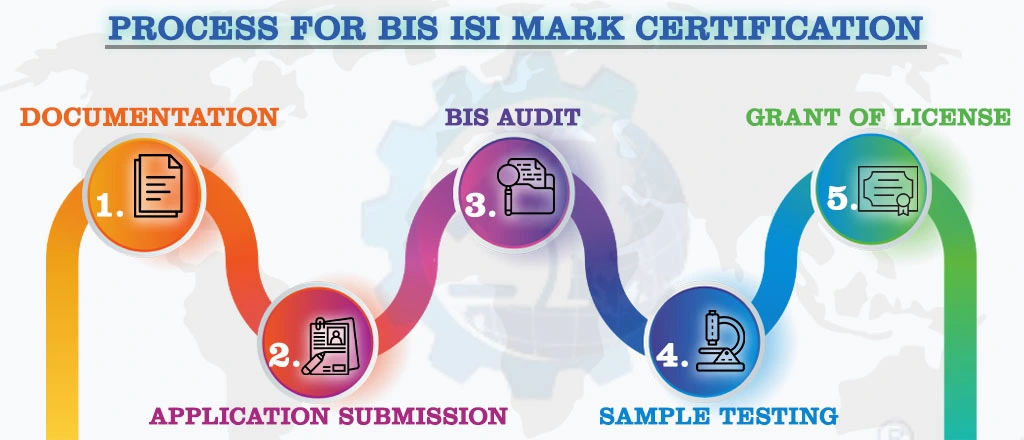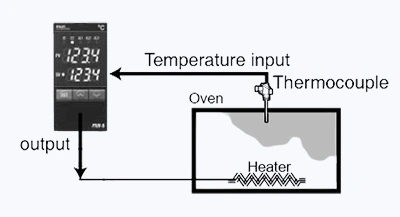BIS CERTIFICATION FOR TEMPERATURE SENSING CONTROLS
IS/IEC 60730-2-9:2011
It isn't easy to survive in this competitive market without a standard quality and certified product. A BIS license may be required to use standard marks and sell products in the Indian market. To obtain BIS certification and produce a standard quality product, the manufacturer must ensure that their product adheres to the Indian standard.
Let's take a closer look at IS/IEC 60730-2-9:2011 for Temperature sensing controls.
Temperature sensing controls are covered by IS/IEC 60730-2-9:2011. IS/IEC 60730-2-9 covers different varieties of automatic temperature-sensing electrical controls; each has a number of classifications. This section of IEC 60730 covers automatic electrical temperature sensing controls for use in, on, or in conjunction with equipment, such as electrical controls for heating, air conditioning, and similar applications. The equipment may use electricity, gas, oil, solid fuel, solar thermal energy, or a combination of these.
This standard also applies to automatic electrical temperature sensing controls for public-use equipment, such as that used in shops, offices, hospitals, farms, and commercial and industrial applications. Unless specifically mentioned in the relevant equipment standard, this standard does not apply to automatic electrical temperature sensing controls intended solely for industrial process applications.
This standard applies to the inherent safety of equipment, the operating values, operating times, and operating sequences associated with equipment safety, and the testing of automatic electrical temperature sensing control devices used in or in conjunction with equipment. The manufacturer must ensure that the product meets the requirements of applicable Indian standards.
TESTS
The following tests shall be carried out for Temperature sensing controls:
- Protection against electric shock
- Protection against electric shock
- Terminals and terminations
- Construction requirements
- Moisture and dust resistance
- Electric strength and insulation resistance
- Heating
- Fire hazard testing
- Resistance to corrosion, etc.
Maintaining a laboratory with the necessary tools and personnel is required to carry out the various tests outlined in the specification using the techniques outlined in the standard. Each electrical control with automatic temperature sensing can also bear the BIS Standard Mark. BIS certification for Temperature sensing controls is required to use the standard ISI mark.
The manufacturer shall obtain a BIS license for temperature sensing control from the Bureau of Indian Standards. The Bureau issues a BIS license based on a successful evaluation of the manufacturing infrastructure, quality control, testing capabilities, and manufacturing process.
Latest QCO for Temperature Sensing Controls IS/IEC 60730-2-9:2011

NOTE:
For Detailed Information about the Procedure for BIS ISI Certification, Visit :
Conclusion:
If a product falls under the scope of the BIS Conformity Assessment Scheme, All the manufacturers, importers, and foreign entities must obtain BIS ISI Certification. The Bureau may cancel the License if the product fails to meet certification requirements.
Aleph INDIA has been serving the industry as a single-window operator for all product regulatory compliance. We can assist importers or manufacturers in meeting all criteria for importing or selling a product in the Indian market.
International Audits & Participation
Testimonials
BIS REGISTRATION FOR ELECTRONIC & IT PRODUCT
In the era of globalization, world trade is growing rapidly and henceforth, Manufacturing and Import/Export businesses are also growing drastically...View More
BIS CERTIFICATE FOR FOREIGN MANUFACTURER
The Economy of India-the fastest developing economy on the globe with the capabilities that help it matches up with the biggest international...View More
PRODUCT CERTIFICATION SCHEME (ISI MARK) FOR DOMESTIC MANUFACTURERS
Anything a person buys from food to cars, clothes to electronics, branded to unnamed products there is always a question that wanders in one’s...View More
WIRELESS PLANNING AND COORDINATION (WPC)
WPC: Wireless means communication done from one point to another point without the wires and cables. Electromagnetic waves carry the ...View More
BUREAU OF ENERGY EFFICIENCY (BEE) CERTIFICATE
BEE CERTIFICATE: Energy is the future, and its conservation is the way of the bright future. Everyone claims the environment is important...View More
E-WASTE MANAGEMENT
E-waste is one of the world's fastest-growing trash streams. We currently manufacture almost 50 million tones of it each year...View More
Request a call back.
Would you like to speak to one of our Senior Technical advisers over the phone? Just submit your details and we’ll be in touch shortly. You can also email us if you would prefer.
BIS REGISTRATION FOR ELECTRONIC & IT PRODUCT
In the era of globalization, world trade is growing rapidly and henceforth, Manufacturing and Import/Export businesses are also growing drastically...View More
BIS CERTIFICATE FOR FOREIGN MANUFACTURER
The Economy of India-the fastest developing economy on the globe with the capabilities that help it matches up with the biggest international...View More
PRODUCT CERTIFICATION SCHEME (ISI MARK) FOR DOMESTIC MANUFACTURERS
Anything a person buys from food to cars, clothes to electronics, branded to unnamed products there is always a question that wanders in one’s...View More
WIRELESS PLANNING AND COORDINATION (WPC)
WPC: Wireless means communication done from one point to another point without the wires and cables. Electromagnetic waves carry the ...View More
BUREAU OF ENERGY EFFICIENCY (BEE) CERTIFICATE
BEE CERTIFICATE: Energy is the future, and its conservation is the way of the bright future. Everyone claims the environment is important...View More
E-WASTE MANAGEMENT
E-waste is one of the world's fastest-growing trash streams. We currently manufacture almost 50 million tones of it each year...View More
View All Services
Request a call back.
Would you like to speak to one of our Senior Technical advisers over the phone? Just submit your details and we’ll be in touch shortly. You can also email us if you would prefer.






























